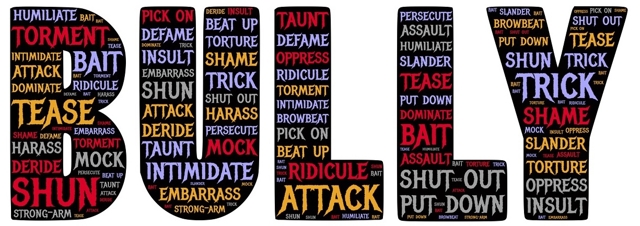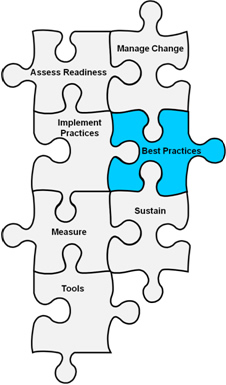Do you have a bully on your HOA board? The kind of person whose presence is hard to endure. Someone who insists on having it their way, makes snide remarks when they don’t agree, a caustic person whose very presence makes your skin crawl. Someone who makes it so difficult to get along with, that almost no one knows how to handle them.
The bullying can take the form of passive aggression, snide comments, or outright verbal attacks. If you feel you’ve got a bully on the board, read on to see what you can do about it.
The first step to dealing with any bully is to recognize what you’re up against. Sometimes the bully’s behavior is so subtle you don’t realize what’s happening. Usually the bully is charming at first – well spoken, charismatic, and seems to be exactly what you need. Who wouldn’t want someone so capable and persuasive serving on the board!
Then after a while, something shifts. They begin complaining. They make sport of finding fault with everything and everyone. They seem to enjoy blaming others, picking fights, and generally doing whatever they can to both assert control over a situation while at the same time shirking responsibility for unpopular decisions. This is likely coupled with the martyr mentality of, “Look at all I’ve done for you. I’m working so hard for YOU. You’re lucky to have someone like me on the board. And THIS is the thanks I get?!”
Perhaps others (maybe even other board members) don’t believe you when you mention the bullying behavior, or they don’t see it that way. That’s one of the hard things about dealing with a bully; you second guess yourself so often since it seems no reasonable person would act like they do unless you’re doing something to set them off. Maybe you bring out the worst in them. Maybe you’re too sensitive. Maybe you’ve misread their intent; especially because they’re great at extolling their virtue, pure intent, and innocence of any wrongdoing.
Now, I’m all for self-evaluation in the midst of a problem, seeing what you’re doing to contribute to the issue. With a bully, however, this can prove detrimental if you’re enabling the behavior. The one being bullied, the target, usually takes on too much of the responsibility for the problem, meaning the bully is never confronted with having to do so. The bully, or others, tries to convince the target that they’re reading the situation wrong and should lighten up. And usually the bully is persuasive through charm or intimidation, using threats and coercion if they have to.
Since no one deserves to be mistreated, it’s important that when behavior has crossed over into subtle attacks, name calling, attempts to divert from real issues, feigned offense, impugning others’ motives (“if you really cared, you would…”), threats, intimidation, coercion, shame, or any other unkind, unhealthy behavior, you take immediate steps to end to it. Ignoring, enabling, or appeasing will only support the unhealthy dynamic.
To protect the board,
the HOA,
and yourself from a bully:
- Beware of charming people a little too eager to serve
- Kindly, but firmly, state what you’re willing and not willing to live with
- Follow through on the boundaries you set
1. Beware of charming people a little too eager to serve
As ridiculous as this one sounds, it’s the first step to protecting yourself from an HOA bully. Of course, it’s not as if you would attempt to block someone from running for the board or kick them off on the basis that they are too suave and seemingly so capable, but at least you know what to watch out for. If someone is over-the-top charming, eager to curry favor, or seems just a little too slick, pay attention to your gut and keep an eye on them. Usually they want to serve for the power and prestige and once given a little, will wield it without regard for others.
2. Kindly, but firmly, state what you’re willing and not willing to live with
If the bullying has already begun, don’t try to defend or justify yourself when attacked. Bullies love a fight. Instead, calmly state what treatment you are willing to accept and what treatment you won’t tolerate. This is known as setting boundaries.
For example, let’s say Mary (it’s important to note bullies can be male or female), a board vice president, has made snide comments to you such as, “Brilliant idea. Now if only we could get people to care about your silly little social committee,” and “Well, good thing you’re not the treasurer or we’d be bankrupt by now.”
If this happens once or twice, you may choose to overlook it. But if it’s a pattern, it will continue until you set the boundary. When Mary makes the offending comment, address it without reacting. Rather, you want to respond. It looks something like this: “Mary, I’m not going to participate in meetings where I feel attacked and belittled. When that happens, I’m going to ask you to rephrase without attacking me.”
Mary may feign offence and innocence and become indignant. Don’t fall into the trap of defending and justifying yourself, as it only furthers the cycle since the bully loves when someone reacts to their anger and attempts to deflect from their behavior. Instead, kindly, honestly, and reasonably state what you’re willing to allow and not allow.
If any clarification is needed, stick with the issue at hand and speak plainly and succinctly. You could say, “If you have financial concerns about the ideas I suggested, please simply state that you don’t like the idea and why. Comments about the board being bankrupt if I were treasurer aren’t necessary and I won’t sit in meetings where you insist on making those comments.”
As a quick aside, limit any non-official communication you have with the bully. You want all communication documented such as at a board meeting where minutes are being taken.
If Mary’s behavior is bad enough and other members are aligned with the idea, you may need to set the boundary of asking Mary to leave the meetings if the behavior continues. Bullies will continue their behavior until they stop getting rewarded for it.
3. Follow through on the boundaries
If you’ve told Mary you’re not going to tolerate her personal attacks and she slings another one at you, calmly state, “Mary, your comment has crossed the line and I’m not going to tolerate it.” This is now on the record. If necessary, you can get up and walk out of the meeting. On some levels it may seem rash or juvenile or like Mary has won. Rest assured, quite the opposite of those is true. Mary now knows her behavior won’t be tolerated, and attention is directed to her unreasonable behavior. She can no longer operate as she wishes unchecked; you’ve changed the dynamic.
Other reasonable board members will see this pattern of Mary attacking and you refusing to enable it. It will encourage them to do the same. The collective energy against Mary will cause her to try her behavior for a time – perhaps even ramping it up – until she sees it’s ineffective, or she will quickly change her course. Either way, the bullying will ultimately become a lesser factor affecting you.
Some bullies are persistent and it will take time to show them you’re serious. You have to be consistent in how you address their behavior and follow through on the reasonable boundaries you’ve set in a kind, honest, and reasonable manner, and seek legal advice when prudent. You can’t make them change, but you can create an environment that doesn’t reward their behavior. And your HOA will be better for it.
Brandon Pipkin is a speaker, author, and trainer specializing in helping people reach their personal best, as well as deal with the bullies in their lives. If you’d like to learn more about how he can help your board, visit courses.21for21.com Print
Print Email
Email









